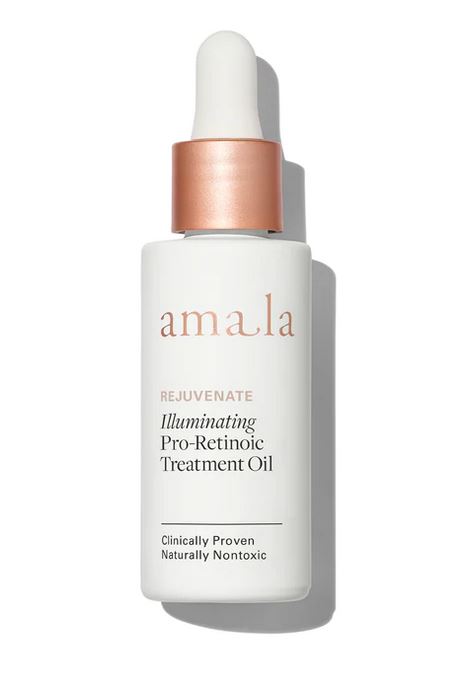Your 20s is your skin’s peak time
You’re no longer going through adolescence, but your skin maintains a youthful radiance and your epidermis is still firm and hydrated. However, the regeneration of skin cells drops by upwards of 28%. It becomes harder for dead skin cells to shed as well, which can lead to skin that looks marginally duller. It’s a very good habit to get into using a cleanser and toner, particularly if you use make-up on a daily basis.
Use high SPF moisturizer (15 or higher) every day. UV rays penetrate the skin and reduce the elasticity of the dermis. It is said by dermatologist that up to 80% of aging is caused by the sun. Now is also the optimal time to quit smoking. Cigarette smoke prevents oxygen from reaching your skin cells and can induce premature aging, as well as pucker lines around your mouth in the following years. Another habit to avoid is yo-yo dieting. This eating habit also contributes to premature wrinkles – skin that is stretched too often becomes baggy. Always drink lots of water to stay hydrated.
Taking care of skin in your 30s
The renewal of your skin cells decreases further, while sun, smoke, and pollution damage begins to visibly affect the dermis. This causes the skin to become less elastic, thus sagging. When you smile, dermal fat creates folds that will not bounce back as quickly as they did in earlier years. You may start to notice your first wrinkles begin to appear. Red or purple “spider veins” can also be an age-related skin imperfection, caused by debilitated collagen that holds up your capillary walls. At this point, you should have created an everyday skin care routine that includes cleansing, moisturizing, and an SPF element for sun protection.
Be sure to eat a diet that is full of antioxidants like A, B, C and E vitamins that fight off environmental molecules that attack our cells and speed up the aging process. These essential vitamins help repair our skin, keep it hydrated, and create enzymes that help stabilize our production of collagen. To further protect yourself, use an antioxidant facial cream, especially one that includes vitamin E. Try to reduce excessive alcohol intake. Alcohol depletes vital nutrients from the skin and causes blood vessels in the face to expand.
If you aren’t careful, these blood vessels can dilate permanently and lead to dark spider veins. Overall, drink lots of water to maintain moisture of your skin. Also be sure you’re sleeping enough – getting the appropriate amount of sleep will improve your complexion drastically. Use a night cream full of vitamins. At night, the temperature of our skin increases, so absorption of nutrients is at its peak.

Taking care of skin in your 40s
The production of sebum, or oil, takes a dramatic plunge in your 40s, which is beneficial if your skin is oily, but also calls for a good moisturizer to rehydrate your skin. Avoid any products that are petroleum-based and block your pores. Your subcutaneous layer loses fat and leaves your skin in a fragile state, while the dermis continues elasticity loss. The stratum corneum gets thicker, because dead skin cells shed slower.
If you don’t now, use a facial scrub to regularly exfoliate, but not too much. Once weekly is plenty. Trying a cream that contains alpha hydroxy acids (AHAs) can also help by stripping off dead skin cells, leaving you with a fresh-looking face. It has been warned that overusing AHAs leaves your skin vulnerable to further thinning and increases sensitivity to sunlight. The older your skin, the thinner it gets. As you begin to form deeper wrinkles, a retinoid cream, containing pure vitamin A maybe good to experiment with. These creams have been known to reduce the appearance of fine lines and wrinkles, as well as age spots.
These creams may sting your skin at first if you have sensitive skin. The most effective known cream is Retinova, or tretinoin, and is only available by prescription. Creams that contain retinol, a derivative of vitamin A, are as over-the-counter treatments. Any product containing vitamin A will make the skin more vulnerable to sunlight, so couple it with an SPF or use as a night cream.
Taking care of skin in your 50s and older
Pigment cells, called melamolytes, will cluster together to create brown age spots. The production of sebum decreases further, the stratum corneum keeps thickening and collagen becomes more fibre-like. The post-menopausal decrease in estrogen levels causes skin to lose its tone and plumpness, which may leave it dry, itchy and sensitive to allergens that permeate the air. Mature skin is more delicate and is also less physically sensitive, leaving it much more vulnerable to bruising and tearing and taking the skin far longer to repair itself.
Blood vessels are easy to break, and skin growths like warts are increasingly prevalent in your 50s. At this stage in life, it is important to take extra care of your skin. Use a mild cleanser and toner to wash your skin, and avoid irritants and harsh products like alcohol. Apply a good moisturizer that contains SPF and avoid sunlight. Try using a cream with an anti-aging formula, like idebenone or retinol. Apply this cream at night, as it increases your skin’s sensitivity to sunlight. As your skin goes through the aging process, remember that wrinkles are normal and natural. A well-defined face has just as much beauty and character as one of youth.





